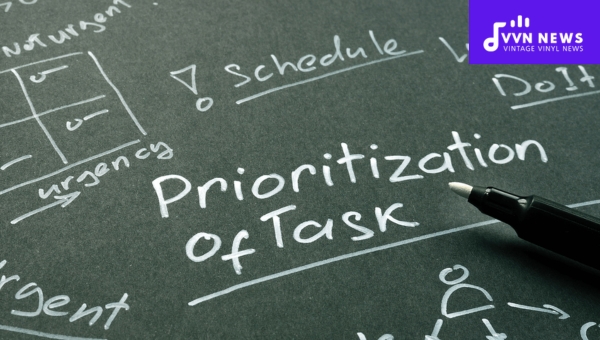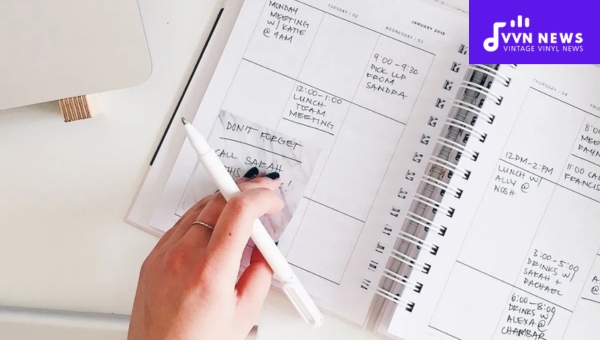Do you ever find yourself struggling to stay organized and focused when practicing a particular skill or hobby? If so, you’re not alone. Many of us face this challenge, which is why I’ve put together this informative blog post to help you create an effective practice schedule.
In this article, I will share 15 practical and straightforward ways to structure your practice sessions for optimal results. So whether you’re learning to play an instrument, studying a new language, or honing your athletic abilities, these tips will guide you toward success.
When it comes to mastering a new skill, consistency is key. With an effective practice schedule in place, you can ensure that you are dedicating enough time to focus on your chosen pursuit.
By following these 15 methods, you can create a structured and efficient practice routine that will help you make significant progress. So without further ado, let’s dive right into exploring the top 15 ways to create an effective practice schedule!
15 Ways To Create An Effective Practice Schedule!
When it comes to improving your skills or mastering new ones, having a well-structured practice schedule is crucial.
By following these 15 practical tips and techniques, you can create an effective practice routine that will help you make consistent progress and achieve your goals.
Set Clear Goals
Setting clear goals is crucial when creating an effective practice schedule. Start by determining what you want to achieve with your practice sessions.
Is it to learn a new song on the guitar? Improve your conversational skills in a foreign language. Or perhaps increase your flexibility for yoga? Once you have identified your goals, make them specific, measurable, achievable, relevant, and time-bound (SMART).
For example, instead of saying “I want to get better at playing the guitar,” set a goal like “I want to learn three new chords and play a complete song within two weeks.”
Having clear goals will provide you with focus and motivation during practice sessions.
Also Read: 10 Ways To Include Music Theory In Your Lessons [Practical Tips]
Prioritize Tasks and Techniques
When creating your practice schedule, prioritize the tasks and techniques that are most important for your skill development. Identify the areas where you need to improve most of the techniques that are foundational for mastering your skill.

For example, if you are learning to play basketball, prioritize shooting technique, dribbling skills, and footwork drills over other aspects of the game initially.
By prioritizing tasks and techniques, you can allocate more time and energy toward essential elements that will have a significant impact on your overall progress.
Establish a Consistent Routine
Consistency is key in any practice routine. Establishing a consistent schedule will help develop discipline and make it easier to stay committed to your goals.
Find a time of day that works best for you when scheduling your practice sessions. Whether it’s early mornings before work or late evenings after dinner, aim for regularity in practicing at the same time each day or week.
By sticking to a consistent routine, practicing will become habitual, making it easier for you to show up and stay dedicated long-term.
Break Practice into Manageable Segments
Breaking down your practice sessions into manageable segments can increase productivity and prevent burnout. Instead of trying to tackle everything at once, divide your practice time into smaller, focused segments.
For example, if you are learning a piece of music on the piano, break it down into sections or phrases and focus on mastering one section at a time. Once you have learned and memorized that section, move on to the next.
Breaking practice into manageable segments allows for better concentration and helps to avoid being overwhelmed. It also allows you to track progress more effectively.
Allocate Focused Time Blocks
Allocate specific time blocks for your practice sessions and ensure that they are focused and free from distractions. Dedicate uninterrupted periods solely to your practice, giving your full attention to the task at hand.

Set a timer for each practice segment or technique you are working on, ensuring that you stay focused during that designated block of time. Avoid multitasking or checking your phone during these intervals.
Allocating focused time blocks helps maximize productivity by ensuring dedicated attention to your practice sessions. It also allows for better time management so you can fit in other responsibilities throughout the day.
Include warm-up and cool-down exercises
Before diving into your practice sessions, it’s crucial to include warm-up exercises to prepare your body and mind for the activities ahead. Warm-ups help increase blood flow, loosen muscles, and reduce the risk of injury. They also help to improve focus and concentration.
Some effective warm-up activities include stretching, light cardio exercises such as jogging or jumping jacks, and specific warm-up exercises related to your skill or hobby. For example, if you’re practicing tennis, warm up with some gentle swings and footwork drills.
On the other hand, cool-down exercises are equally important for safely ending your practice sessions. They help reduce muscle soreness and stiffness by gradually bringing your heart rate back to its resting state.
Cool-down activities can involve gentle stretching, deep breathing exercises, or even meditation to promote relaxation and recovery. Take a few moments at the end of your practice session for these cool-down exercises to aid in recovery and prevent muscle tightness.
Also Read: 13 Best Power Conditioners For Superior Protection [Buying Guide]
Mix up practice activities
Practicing the same task or technique repeatedly can lead to boredom and plateaus in skill development. To keep your practice sessions fresh and engaging, it’s important to mix up your activities.
Include a variety of exercises, drills, and challenges that target different aspects of your skill or hobby. For example, if you’re learning to play the piano, alternate between practicing scales, learning new songs, and working on music theory.
By varying your practice activities, you engage different muscles and cognitive processes, preventing monotony and increasing overall skill development. It also helps build versatility and adaptability in your chosen pursuit.
Track progress and adjust as needed
Tracking your progress is crucial for staying motivated and making necessary adjustments to your practice schedule. Keep a record of the skills you’ve been focusing on, the techniques practiced, and any milestones or achievements reached.

Set specific milestones or benchmarks that indicate progress along the way. This could be achieving a certain speed on the guitar or being able to hold a conversation in a foreign language for a specific duration.
Regularly evaluate your progress based on these milestones and adjust your practice schedule as needed. If you notice areas where you’re struggling or not making significant progress, re-evaluate your approach and seek ways to improve.
Tracking progress also provides a sense of accomplishment when you look back at how far you’ve come since starting your practice journey.
Set realistic time limits
When creating an effective practice schedule, it’s essential to set realistic time limits for each session. Understand your personal limitations in terms of focus and energy levels.
For beginners or those with limited time availability, shorter but more frequent practice sessions may be more effective than longer sessions.
Start with manageable timeframes and gradually increase the duration as you build stamina and skill level.
By setting realistic time limits, you prevent burnout while maximizing productivity during each session. It also ensures that you can consistently commit to your practice schedule without feeling overwhelmed.
Eliminate distractions
Distractions can significantly hinder your practice sessions and prevent you from reaching maximum productivity. Make a conscious effort to eliminate or minimize distractions during your practice time.
Designate a dedicated practice space that is free from outside noises or interruptions. Silence or turn off your phone, close unnecessary tabs on your computer, and inform family members or roommates of your focused practice time.
Eliminate any potential distractions that pull your attention away from the task at hand. By creating a distraction-free environment, you can fully immerse yourself in your practice sessions and achieve better results.
Also Read: 5 Tips To Relate To Non-Musical Parents [Ways to Envolve]
Vary Practice Locations
To keep your practice sessions engaging and prevent monotony, consider varying your practice locations. Instead of always practicing in the same place, try different environments or settings.

This can include practicing outdoors in a park, finding a quiet corner in a coffee shop, or even exploring a new space that inspires creativity.
Varying practice locations can provide fresh stimulation for your mind and help prevent boredom. It can also expose you to different sights, sounds, and atmospheres, which may enhance your overall experience and improve your learning outcomes.
Seek Feedback and Guidance
Another crucial aspect of creating an effective practice schedule is seeking feedback and guidance from others who are knowledgeable or experienced in the same skill or hobby.
Whether it’s working with a coach, joining a study group, or seeking feedback from peers, external input can greatly enhance your progress.
By seeking feedback, you gain valuable insights into areas of improvement that you may not have noticed on your own.
Constructive criticism from others not only helps refine your techniques but also keeps you accountable for consistent growth.
Embrace Deliberate Practice
Deliberate practice refers to intentionally focusing on specific aspects of skill development that need improvement.
It involves breaking down complex tasks into smaller components and focusing dedicated effort on those areas.
To incorporate deliberate practice into your schedule, identify the specific aspects of your skill that are challenging for you. Then design exercises or drills specifically tailored to target those areas.
By engaging in deliberate practice sessions regularly, you ensure that you are efficiently working on areas that will make the most significant impact on your overall progress.
Maintain a Positive Mindset
A positive mindset is essential when creating an effective practice schedule. Believe in yourself and trust the process. Acknowledge that progress takes time and effort.

Avoid getting discouraged by setbacks or slower-than-expected progress. Instead, focus on celebrating small victories along the way as they serve as milestones towards achieving your goals.
Maintaining a positive mindset allows you to approach each practice session with enthusiasm, dedication, and resilience. Remember that the journey of skill development is as important as the end result.
Rest and Recovery Periods
Rest and recovery periods are vital components of an effective practice schedule. It may seem counterintuitive, but taking breaks actually enhances your learning and skill acquisition.
Build rest intervals into your practice sessions to allow your mind and body to recharge. These intervals can vary depending on the duration and intensity of your practice. For example, during a one-hour practice session, take short breaks every 20-30 minutes.
During these rest periods, engage in activities that help you relax and recharge, such as stretching, meditating, or simply stepping away from your practice environment. This allows for mental clarity and prevents burnout or mental fatigue.
In addition to incorporating rest intervals within individual practice sessions, make sure to allocate days off from practicing altogether. Giving yourself regular breaks promotes sustained motivation, prevents physical strains or injuries, and ultimately enhances overall performance.
Creating an effective practice schedule requires structure, focus, and dedication. By setting clear goals, prioritizing tasks, establishing consistent routines, and breaking down practice segments into manageable parts while allocating focused time blocks with varying locations.
By seeking feedback while embracing deliberate practice; maintaining a positive mindset; and incorporating adequate rest periods; you can maximize the efficiency of your practice sessions.
Remember that mastery takes time but it’s attainable with consistent effort and a well-designed schedule. So go ahead and implement these strategies into your routine to enhance your skill development journey!
Also Read: 15 Ways To Improve A Bad Tone [Revamp Your Guitar Sound]
FAQs
How long should my practice sessions be?
Practice sessions should ideally be between 20-60 minutes, depending on your skill level and the complexity of the task. Start with shorter sessions and gradually increase the duration as you build endurance and focus.
Should I practice every day?
Consistency is key, so aim to practice regularly. However, it’s also important to listen to your body and avoid burnout. Taking short breaks or having rest days can actually enhance your progress in the long run.
How do I stay motivated during practice sessions?
Set clear goals, reward yourself for reaching milestones, and remind yourself of why you started in the first place. Additionally, finding a practice buddy or joining a supportive community can help keep you motivated and accountable.
Can I incorporate other activities into my practice schedule?
Absolutely! Mixing up your practice routine by incorporating related activities can help keep things fresh and prevent boredom. For example, if you’re learning a new language, try watching foreign movies or reading books in that language to supplement your studies.
How do I track my progress effectively?
Keep a journal or use a tracking app to note down milestones reached, techniques learned, or areas that need improvement. Regularly reviewing this record will not only help you measure progress but also allow you to identify patterns or areas where adjustments may be needed in your practice schedule.
Also Read: Discover the Most Popular Chord Progressions in Music
Conclusion
Creating an effective practice schedule is vital for achieving success in any skill or hobby. By setting clear goals, prioritizing tasks, establishing a consistent routine, breaking practice into manageable segments, and allocating focused time blocks, you can enhance your progress and maximize productivity.
Additionally, incorporating warm-up exercises, tracking progress, eliminating distractions, seeking feedback, and embracing deliberate practice will contribute to your overall development.
Remember to maintain a positive mindset and allow for rest and recovery periods to avoid burnout. With these practical strategies in place, you’ll be well on your way to reaching your desired level of proficiency.








